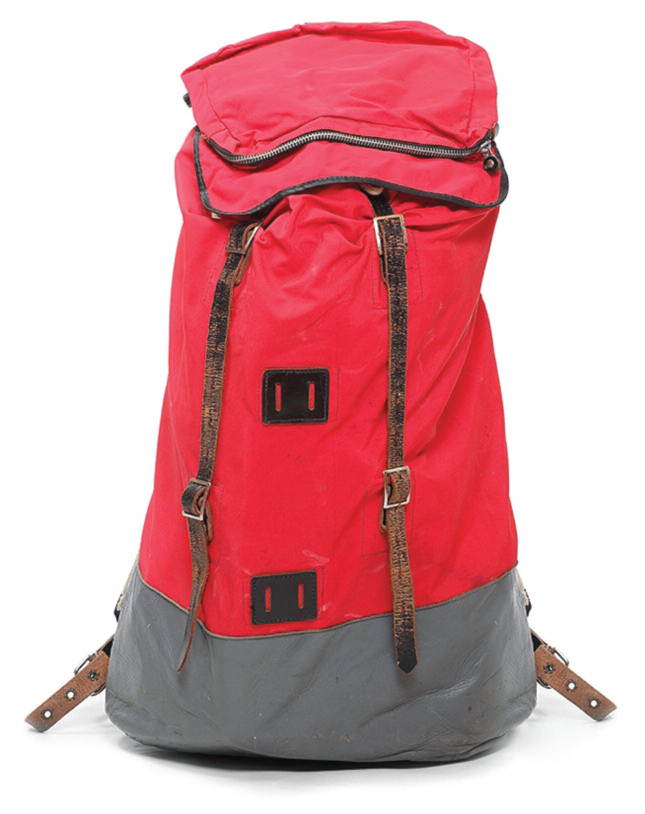Clinical

Travel health: Just the ticket?
In Clinical
Let’s get clinical. Follow the links below to find out more about the latest clinical insight in community pharmacy.Bookmark
Record learning outcomes
Offering a travel clinic can add significant value to the service pharmacists offer and be a regular source of additional income.

The first place to start if you want to set up a travel health clinic in your pharmacy is to assess whether there is any demand in your area, says Michael Stewart, one of Numark’s information pharmacists.
“Your local knowledge, and that of your team, will be crucial in deciding what opportunities exist,†he says, “so look at your local demographics: Are people elderly or mainly families? Are they people who are likely to travel frequently? Where do they currently go for travel health advice and services, and can you offer something different or more convenient?â€
The next step is to carry out a risk assessment based on individual patient factors and popular destination countries to help you give the best advice. “Providing this level of service to your customers is the first step in becoming a ‘go-to’ destination for travel health in your community,†says Stewart.
“Once the key risks, such as any necessary vaccinations, are addressed, your counter assistants can make sure customers have everything else they need in terms of sun protection, first aid, insect repellents and rehydration salts, as well as giving advice on their use.â€
Get your team on board
Staff should be “heavily involved†in building awareness that their pharmacy has a travel clinic and provides vaccinations, says Anika Shah, Careway pharmacist at Kings Pharmacy in Camden.
“Staff involvement by actively engaging in conversations with patients about the importance of travel health is a high priority,†she says. “Colleagues also play a key role in preparing both patients and the consultation room. Working as a team results in smoother, more efficient services and allows your pharmacy to help greater numbers of patients each day.â€
Extra training may be necessary for you and your staff to offer a travel health service. Injection techniques (intramuscular and subcutaneous) and anaphylaxis management (using auto-injectors) will need to be learnt if you decide to offer a travel vaccination service.
Travel vaccines
 While it is not always necessary to have vaccinations to travel abroad, if you know a customer is planning an overseas trip it is worth talking about where they are going to see if they need any vaccinations or antimalarials.
While it is not always necessary to have vaccinations to travel abroad, if you know a customer is planning an overseas trip it is worth talking about where they are going to see if they need any vaccinations or antimalarials.
The cost of vaccinations can deter a lot of people from getting themselves protected, says Anika Shah, which is why it is crucial to highlight that receiving the correct immunisations is essential to protect against debilitating infections that can sometimes be fatal.
Michael Stewart believes that developing links with local surgeries “can allow for referral of patients where vaccinations are not funded by the NHS [as] not only will people pay for a private service delivered by pharmacy, they will sometimes pay even when a free option is available to them.â€
Travel vaccines that should be offered include hepatitis A, typhoid and vaccinations for holy pilgrimages such as Hajj and Umrah, where travellers require a quadrivalent vaccine against meningitis. At the same time, checks that existing UK vaccinations, such as polio and tetanus, are up-to-date can be made, and booster jabs arranged if they are not. The NHS Fit for Travel website has vaccination information for every country in the world, as well as which jabs are available on the NHS and which have to be paid for.
Antimalarial advice
The World Health Organization estimates that malaria kills around one million people across the globe each year, but it is preventable. Antimalarials are not usually available on the NHS but can be supplied under a patient group direction (where available) following assessment. Travellers should be advised to apply insect repellent, cover arms and legs, and use an insecticide-treated mosquito net.
Resources to recommend
There are plenty of resources pharmacy teams can access to get up-to-date information for themselves and customers about different regions and their travel health issues and requirements.
- CDC Travel is a good source for travel health information, as is the National Travel Health Network and Centre, Fit for Travel and NHS Choices
- NaTHNaC launched a new website last summer, which contains all its travel health resources for both healthcare professionals and travellers, with information by country on vaccinations, infectious and non-infectious diseases, malaria prevention and disease outbreak, among other topics
- There are also clinical resources available at Travel Health Pro, where healthcare professionals can access factsheets such as Zika risk assessments and UK malaria prevention guidelines
- The NPA’s website includes a comprehensive travel section that allows members to use an interactive map showing the necessary vaccinations and malaria advice for different countries and continents.
Offering a travel health clinic also gives community pharmacists and pharmacy technicians the chance to access the NICE Clinical Knowledge Summaries to refresh their knowledge, which provides an ideal CPD opportunity, says Michael Stewart.
Marketing your travel health service
Like all services pharmacy offers, the key to making a travel health clinic a success is making sure your customers – and local GP colleagues – know it exists.
“The basis of marketing the service is to get the word out that travel vaccinations are essential, explain how travel diseases can be contracted and the implications of not being vaccinated,†says Anika Shah. “This includes having motivated, trained staff to actively promote the service, and using leaflets on the different vaccinations to give patients a well-rounded education on travel health.â€
It is also important to ensure multidisciplinary communications are open, which includes being able to notify GPs immediately if patients have received any vaccinations.
Travel health kits
 Alongside giving the appropriate advice, pharmacies can also capitalise on the business opportunity that the travel health category offers. Staff can help customers assemble a travel health kit that is appropriate for the area they will be visiting.
Alongside giving the appropriate advice, pharmacies can also capitalise on the business opportunity that the travel health category offers. Staff can help customers assemble a travel health kit that is appropriate for the area they will be visiting.
“If a customer comes into the pharmacy asking for insect repellent, this gives you the chance to ask where they are travelling to and then you can discuss what other items they may need to purchase, such as anti-diarrhoea or oral rehydration treatments,†says Michael Stewart.
Depending on their destination, the following items can be useful in a travel health kit:
- Sunscreen
- After-sun lotion
- Oral rehydration sachets
- Anti-diarrhoea tablets
- Laxatives
- Lip balms (with SPF)
- Tissues/wet wipes/alcohol-based hand sanitiser
- Contraception
- Antihistamines
- Motion sickness tablets
- Painkillers such as paracetamol or ibuprofen
- Insect repellent and bite cream
- Remedies for indigestion or over-indulgence.
Pharmacists should also suggest that customers take a first aid kit, whether it is pre-prepared or comprises individual items. Again, the recommended contents will depend on the person’s destination, says Stewart.
“For example, a basic kit containing antiseptic cream, plasters and antiseptic wipes will often suffice when travelling on a European holiday or to developed countries, but if someone is going on a more adventurous trip, such as trekking through the Amazon, they will need a more comprehensive kit containing items such as sterilised syringes, sutures and clean needles.â€
Pharmacists and their teams are on the frontline when it comes to promoting health and ensuring patients and customers have options and choices when it comes to their holiday healthcare and vaccination needs, says Anika Shah. “By bringing travel health into a pharmacy setting, pharmacists’ skills can be utilised and will in turn help reduce pressures on the NHS.â€
Zika virus outbreak – the latest
The Zika virus (ZIKV) is mosquito-borne and has recently been associated with microcephaly – a birth defect that causes brain damage and an abnormally small head in babies born to mothers infected during pregnancy.
It has also been associated with the autoimmune disease, Guillain-Barré syndrome, which can lead to temporary paralysis. In the majority of infected individuals symptoms are mild and include fever, skin rashes and flu-like illness, according to the World Health Organization.
The current outbreak in the Americas and the Caribbean has led the WHO to declare the Zika virus “a public health emergency of international concernâ€. For any traveller going to areas with active ZIKV transmission, the following risk factors should be considered.
Is the traveller:
- Pregnant?
- Planning to become pregnant prior to travel, during travel, or during the 28 days following her return from an area with active ZIKV transmission?
- The male partner of a woman who is pregnant?
- The male partner of a woman at risk of pregnancy or planning a pregnancy?
- Immunosuppressed or has any co-morbidities?
It is recommended that pregnant women should postpone non-essential travel to areas with active Zika transmission until after pregnancy. In addition women should avoid becoming pregnant while travelling in an area with current active ZIKV transmission and for a further 28 days afterwards.
If a woman develops symptoms compatible with ZIKV infection, it is recommended she avoids becoming pregnant for a further 28 days following recovery. Pregnant women who have recently travelled in an area reporting active Zika virus transmission in the past nine months should seek advice from their GP or midwife on their return to the UK, even if they have not been unwell.
Almost all cases of ZIKV are acquired via mosquito bites but a small number of cases via sexual transmission have been reported. In a limited number of cases, the virus has been shown to be present in semen, although it is not yet known how long this can persist. The risk of sexual transmission of ZIKV is thought to be low, but the number of reports is increasing.
In view of this, any male traveller whose partner is pregnant is advised to use condoms during travel and for the duration of the pregnancy. This cautious approach is recommended until more is known about sexual transmission of ZIKV.
Travellers with co-morbidities, immunosuppression or at extremes of age should also be offered advice regarding the likely impact of any travel-related infection. More information on ZIKV infection and immunosuppression is available from Public Health England and also from the Travel Health Pro website.
